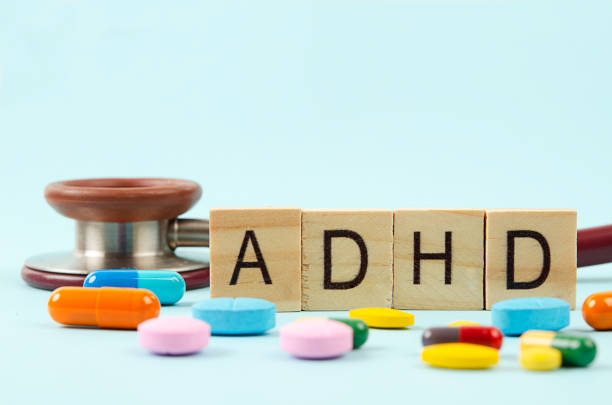Introduction:

Attention-Deficit/Hyperactivity Disorder (ADHD) is a neurodevelopmental disorder that affects individuals of all ages, characterized by persistent patterns of inattention, hyperactivity, and impulsivity. This article provides a comprehensive overview of ADHD, including its causes, symptoms, diagnosis, and the latest research-based treatment approaches.
I. Understanding the Causes of ADHD:
Genetic Factors: Recent research has emphasized the strong genetic component of ADHD, indicating that certain genes play a significant role in its development. Family studies and twin studies have demonstrated a heritability estimate of around 70-80%.
- Neurotransmitter Imbalances: Neurotransmitters, particularly dopamine and norepinephrine, have been implicated in ADHD. Studies suggest that individuals with ADHD may have dysregulation in the brain regions responsible for dopamine and norepinephrine signalling, leading to difficulties in attention, impulse control, and hyperactivity.
II. Recognizing ADHD Symptoms:
- Inattentive Symptoms:
- Difficulty sustaining attention on tasks or activities
- Being easily distracted or forgetful
- Trouble organizing tasks or activities
- Frequently losing items necessary for tasks
- Hyperactive Symptoms:
- Restlessness, constantly being “on the go”
- Excessive talking and difficulty staying seated
- Fidgeting, tapping hands or feet
- Difficulty engaging in quiet activities
- Impulsive Symptoms:
- Acting without thinking, blurting out answers
- Difficulty waiting for turns, interrupting others
- Impatience and difficulty with delayed gratification
III. Diagnosis and Assessment:
- Comprehensive Evaluation: Accurate diagnosis involves a thorough assessment by healthcare professionals, including clinical interviews, rating scales, and observations from multiple sources (e.g., parents, teachers, and the individual).
- Differential Diagnosis: ADHD symptoms may overlap with other conditions, such as anxiety disorders, learning disabilities, or autism spectrum disorder. It is important to rule out these conditions through careful evaluation.
IV. Treatment Approaches:
- Medication: a. Stimulant Medications: Drugs like methylphenidate (e.g., Ritalin) and amphetamines (e.g., Adderall) are commonly prescribed. They enhance neurotransmitter activity in the brain, improving attention, impulse control, and hyperactivity. b. Non-Stimulant Medications: Non-stimulant options, such as atomoxetine (Strattera) and guanfacine (Intuniv), target different neurotransmitters and may be effective for individuals who do not respond well to stimulants.
- Behavioural Interventions: a. Cognitive-Behavioural Therapy (CBT): CBT techniques help individuals develop strategies to manage symptoms, improve organizational skills, and address emotional regulation challenges. b. Parent and Teacher Training: Programs such as Parent Management Training and Behavioural Classroom Management provide parents and teachers with tools and skills to support individuals with ADHD, promote positive behaviours, and create structured environments.
- Educational Support: a. Individualized Education Plans (IEPs): Schools develop IEPs to provide accommodations, modifications, and additional support tailored to the student’s specific needs, ensuring optimal learning opportunities. b. Classroom Interventions: Implementing strategies like visual schedules, clear rules, and incorporating assistive technologies can enhance academic performance, reduce distractions, and promote positive behaviour.
V. Emerging Research and Future Directions:
- Neurofeedback Therapy: This innovative approach aims to train individuals to self-regulate their brainwave patterns through real-time feedback, potentially reducing ADHD symptoms.
- Mindfulness and Meditation: Preliminary studies suggest that mindfulness-based interventions may help improve attention, self-regulation, and reduce hyperactivity in individuals with ADHD.
Conclusion:
ADHD is a complex neurodevelopmental disorder with genetic and neurochemical underpinnings.
Accurate diagnosis and evidence-based treatments improve ADHD management, while ongoing research brings hope for personalized interventions like neurofeedback and mindfulness approaches.

